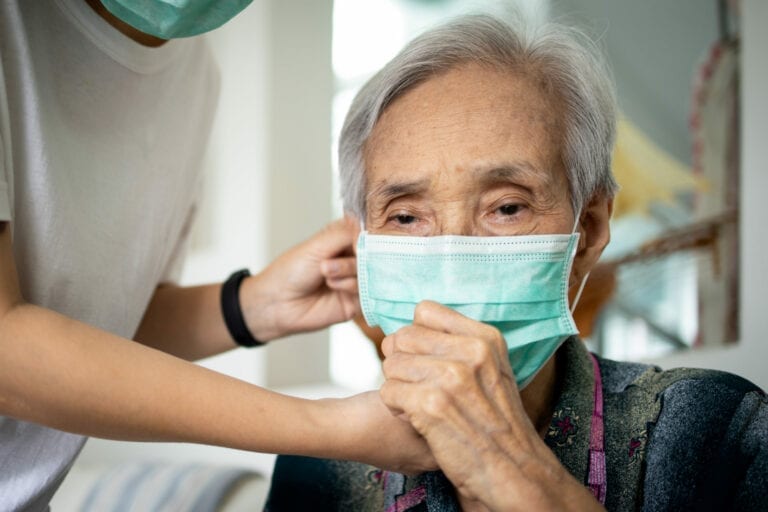When patients are discharged from hospital, there’s often a sense of relief — the hardest part is over. However, the journey to full recovery continues long after the hospital stay ends. At From The Heart Home Care, we understand that post-hospitalisation care plays a critical role in accelerating healing, preventing complications, and avoiding readmissions.
In this article, we explore the many benefits of post-hospital care and why it is essential for a smoother, safer, and faster recovery.
The Role of Post-Hospitalisation Care in Recovery
Post-hospitalisation care involves a multidisciplinary approach that includes nursing, physiotherapy, nutrition counselling, and psychological support. These services are vital in closing the gap between hospital treatment and home recovery.
Without proper aftercare, patients are at greater risk of relapse, complications, or even readmission. For instance, stroke survivors often require ongoing physiotherapy to prevent muscle deterioration and regain mobility.
Regular professional monitoring also helps identify early warning signs of infections, blood clots, or other complications that patients or their families might miss. Early detection ensures that minor issues don’t escalate into serious health threats.
Customised Care Plans Tailored to Individual Needs
At From The Heart Home Care, we recognise that every recovery journey is unique. Customised post-hospital care plans ensure that patients receive the specific type of care they need.
For example, a patient recovering from cardiac surgery requires different care than someone healing from an orthopaedic procedure. The former may benefit from cardiovascular rehabilitation, while the latter may need intensive physiotherapy.
Caregivers are also trained to assist with daily activities, medication administration, and spotting signs of deterioration. This inclusive approach empowers families to support their loved one’s recovery journey.
The Importance of Continuity in Care
Post-hospital care acts as a bridge between hospital and home, ensuring a smooth and safe transition. This continuity is especially critical for individuals with chronic conditions like diabetes, where ongoing monitoring of blood sugar, diet, and medication is essential.
Aftercare also ensures proper wound management for surgical patients, reducing the risk of infection or delayed healing.
At From The Heart Home Care, we promote seamless communication between nurses, therapists, and doctors to ensure every aspect of a patient’s care plan is followed — leaving no room for gaps or oversights.
Psychological and Emotional Support for Patients
A patient’s mental and emotional wellbeing is just as important as their physical recovery. Unfortunately, conditions like anxiety, depression, or post-operative stress often go unnoticed.
Post-hospitalisation care includes access to mental health professionals who can help patients cope with stress, fear of relapse, or frustration over limited mobility. This emotional support is key to keeping patients engaged in their recovery plans.
Family involvement also provides patients with a much-needed emotional boost. A supportive environment encourages positivity and motivation, both of which are crucial to the healing process.
Nutritional Guidance and Its Impact on Recovery
Proper nutrition is a cornerstone of recovery. Post-hospital patients often face dietary challenges, such as reduced appetite or difficulties swallowing (dysphagia). Others, such as diabetic or gastrointestinal patients, may require tailored dietary plans.
Our care professionals work closely with patients to design a nutrient-rich diet that supports immune function, tissue repair, and energy levels. Diets rich in protein, vitamins, and antioxidants help reduce inflammation and speed up healing.
Neglecting nutrition can lead to slower recovery, weakened immunity, and a higher risk of readmission — all of which are preventable through thoughtful post-hospitalisation care.
Learn More: The Benefits of Post-Acute Rehabilitation Care
The Role of Physiotherapy in Post-Hospitalisation Care
Physiotherapy is essential, particularly for patients recovering from surgery, injuries, or extended immobility. It helps improve muscle strength, flexibility, balance, and overall mobility.
After a hospital stay, many individuals experience muscle weakness, stiffness, or joint pain. These issues can hinder daily activities and delay recovery. Physiotherapists use targeted exercises, massage, and other therapies to reduce pain and restore movement.
Routine physiotherapy sessions not only promote recovery but also help prevent long-term complications, such as chronic pain or mobility issues.
Reducing the Risk of Readmission
Hospital readmissions are not only costly but emotionally draining for patients. Many readmissions occur due to:
- Missed follow-up care
- Poor medication adherence
- Unrecognised warning signs
Our comprehensive post-hospital care includes regular check-ups, medication management, and patient education. These measures significantly reduce the risk of preventable complications and keep recovery on track.
By proactively addressing issues before they worsen, we help patients stay home — safe and supported.
Patient Education and Empowerment
One of the most powerful tools in post-hospitalisation care is education. When patients understand their condition, medications, and recovery plan, they are more likely to follow through.
For instance, a patient recovering from heart surgery must know the correct diet, exercise routines, and medication schedule. With this knowledge, they can actively participate in their own recovery and make informed decisions.
Education extends to caregivers as well. Informed family members can assist with daily tasks, medication reminders, and early detection of issues — making recovery a collaborative effort.
Learn More: Climate Change and the Health of Older Adults
Conclusion
At From The Heart Home Care, we firmly believe that post-hospitalisation care is not an option — it’s a necessity. From personalised care plans and emotional support to physiotherapy and nutritional counselling, every aspect of aftercare contributes to a faster and safer recovery.Whether you or a loved one is transitioning from hospital to home, trust From The Heart Home Care to provide the comprehensive support needed for a full return to health.







